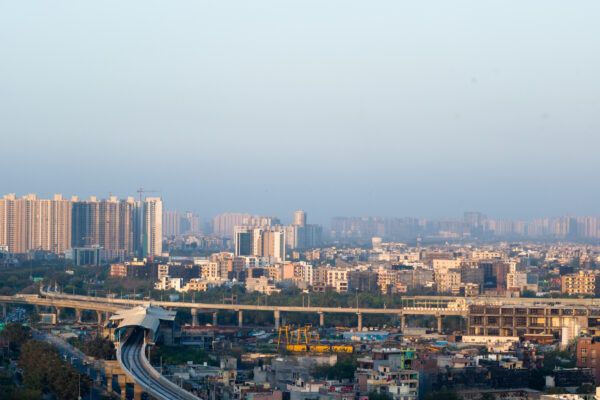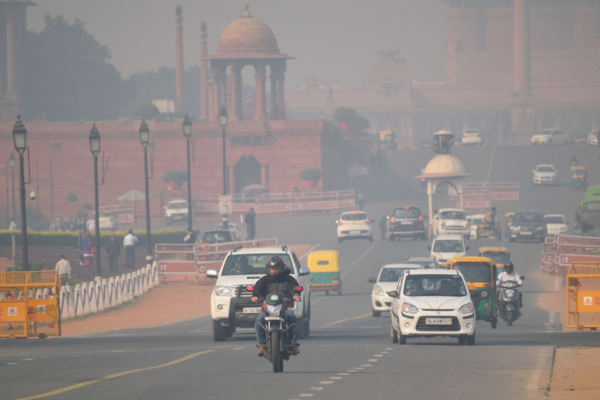Air pollution in India
Of the world’s 30 cities with the worst air pollution, 17 are in India. The capital, New Delhi, has the poorest air quality among capital cities globally, with concentrations of particulate matter (PM2.5) nearly 10 times higher than the World Health Organization guidelines.
Thermal power plants, pollution from vehicles, industrial emissions, burning of crop residue and the burning of wood and dirty fuels for cooking and heating are some of the main causes of air pollution in India.
The effects are devastating. Air pollution accounts for more than 2 million deaths a year in India, according to the State of Global Air 2024. It also leads to health problems like respiratory and cardiovascular diseases.
India has one of the fastest growing economies in the world and better air quality management offers an opportunity to further accelerate growth. If India had achieved safe air quality levels in 2019, its GDP would have increased by $95 billion. Read the full economic analysis from Dalberg. This is because cleaner air would result in lower rates of absenteeism from work, higher productivity at work, higher consumer footfall and fewer premature deaths.
The Indian government has taken steps to address air pollution. It launched an ambitious National Clean Air Program to reduce particulate matter pollution by 30% by 2024, and the target was subsequently revised to 40% by 2026.
Tackling India’s air pollution crisis
We work with government, businesses and research organisations to help reach India’s clean air goals. We support government efforts to reduce air pollution, while catalysing innovation in air quality management. Our work includes:
- Enabling improved generation of air quality data and evidence to inform policy making
- Providing technical assistance to sub-national (state and city) governments to support their air quality management.
- Facilitating dialogue and information sharing between a range of stakeholders, such as private sector leaders and healthcare practitioners.
Our partner the Indian Institute of Technology Kanpur (IIT-K) is collaborating with various government departments to improve air quality data, monitoring and source apportionment. IIT-K’s ATMAN Centre of Excellence has established a network of low-cost sensors across Uttar Pradesh and Bihar to improve air quality and strengthen the existing monitoring ecosystem.
Remote sensing technology is an innovative way to measure vehicle emissions in real-time, rather than in laboratories. The Real Urban Emissions (TRUE) Initiative, with support from the ICCT, worked with authorities in Delhi and Gurugram to conduct emissions testing of on-road vehicles and provided recommendations to the city’s government.
Businesses have a significant role to play in tackling the problem too. The Confederation of Indian Industry developed a Corporate Air Emissions Reporting Guide to help businesses manage and report their air emissions. Their India CEO Forum for Clean Air is also growing, with over 130 members coming together to galvanise India’s private sector to find solutions to poor air quality.
Clean Air Fund has been instrumental in empowering healthcare professionals and amplifying the health voices in the clean air movement. It is a privilege to be a partner and work together towards ensuring clean and healthy air for humankind.
Dr Arvind Kumar – founder trustee of Lung Care Foundation and Chairman, Institute of Chest Surgery, Robotic Surgery, and Lung Transplantation

